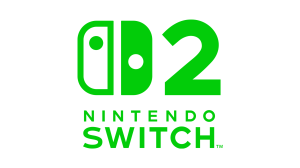Will Black Label, a newly-announced DC imprint aimed at stand-alone, prestige-format superhero projects, make the move from the printed page to the big screen?
Videos by ComicBook.com
In a broad-ranging article about Warner Bros.’ plans to revitalize DC’s movies in the wake of Geoff Johns and Diane Nelson stepping down from their upper management roles, The Hollywood Reporter dug into what is going on at the company. One observation: “Phillips’ [Joker] movie, expected to begin shooting in the fall, is budgeted at about $55 million, a fraction of most superhero pics, and may be launched under a new label that could be branded with a name like “DC Dark” or “DC Black.” We have to wonder: could that label end up being “DC Black Label?”
DC’s Black Label is a comics imprint that will tell stand-alone stories set outside of the canonical DC Universe, positioned for success with mainstream audiences outside of the comics direct market. A focus on bookstore sales is nothing new for comics publishers: Marvel has been struggling with the balance of using multicultural heroes and non-comics writers to appeal to new readers in the (growing) bookstore market without alienating its existing base in comic shops (a larger, but shrinking, marketplace) for some time. DC, for their part, seems to hope that putting those stories outside of “canon” will help sidestep some of those challenges.
“DC Black Label offers leading writers and artists of any industry the opportunity to tell their definitive DC stories without being confined to canon,” said executive editor Mark Doyle when the comics line was announced. “We are carefully crafting each series to fit the vision of the creative team. All of these creators are masters of their craft.”
THR‘s description of the “DC Black” imprint sounds like a mash-up of two previous reports. A few years ago, industry insiders claimed that DC was looking to develop a number of properties as Deadpool-style films, created with smaller budgets (and thus smaller expectations) than other superhero fare. At the time, projects rumored for the initiative included Suicide Squad, Doom Patrol, Booster Gold, and more. Later, after Justice League faced trouble at the box office, a rumor hit that DC would begin making stand-alone movies that existed outside of the canon of DC’s existing shared cinematic universe. For the sake of convenience, we and lots of fans began referring to these as “Elseworlds” movies, a reference to a now-defunct DC imprint that told “what-if” style stories featuring DC heroes.
That second rumor seems to have come true, yielding projects like the Joker stand-alone movie and potentially Blackhawks and The New Gods. The first one? Well, it seemed to have waned until this “DC Black” thing popped back up. The “low-budget DC project” idea vanished, but properties named in the rumor remained in play in various forms: Suicide Squad ended up as a major blockbuster film with a $100M-plus budget. Doom Patrol will be a TV series on DC’s forthcoming DC Universe streaming service, while Booster Gold‘s feature film, said to be written by Zack Stentz and directed by Greg Berlanti, has not generated any new news in a while.
With TV series like Lucifer, iZombie, and Preacher carrying DC’s Vertigo banner to the screen, a murky blend of rumors and conjecture makes the idea of “DC Black Label” being a tag audiences recognize from the end of a 2020 movie seem like a very real possibility.
Earlier this week, artist Sean Gordon Murphy announced on Twitter that DC’s Black Label imprint would release a restored and uncensored collected edition of his miniseries Batman: White Knight as their first release. Both language and nudity had been “cleaned up” during production of the series, but Murphy shared the originals on social media from time to time and had polled his audience to gauge interest in an uncensored cut.
Other planned Black Label releases include Superman: Year One from Frank Miller and John Romita Jr.; Batman: Last Knight on Earth from Scott Snyder and Greg Capullo; Batman: Damend from Brian Azzarello and Lee Bermejo; Wonder Woman Historia: The Amazons from Kelly Sue DeConnick and Phil Jimenez; Wonder Woman: Diana’s Daughter from Greg Rucka; and The Other History of the DC Universe from John Ridley.








